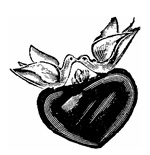
Virtues of the Heart
HOME-GROWN HABITS
In his legendary epic The Odyssey, Homer distinguishes between the civilized and the barbaric, between those who live well and those who live in the sense of mere animal survival. Civilized men delight in the fine arts, enjoy athletic contests and leisure, value knowledge, and cultivate the practical arts like shipbuilding, agriculture, and weaving. Barbarians, on the other hand, lack an appreciation of beauty, play, and the life of the mind.
When Odysseus, the epic’s main character, sojourns in the land of Phaeacia, he is welcomed into a society that lives in peace, works for the common good, honors the gods, and respects the rule of law. The civilized men of Phaeacia not only work industriously but also cultivate leisure and play, enjoying the many fruits of civilization: feasts and banquets, music and dance, poetry and conversation, games and athletics. This balanced, human way of life originates in the home, the center of civilization — the place that refines and sensitizes the heart to the good, the true, and the beautiful. Contrast this to the modern world’s notions of morality, which are dictated by legal decisions, political ideologies, fashionable opinion, and utilitarianism. These dictates are not informed by the virtues of the heart: hospitality, loyalty, tenderness, purity, gratitude, and an appreciation of beauty.
Civilized men practice the virtue of hospitality and welcome travelers and strangers as if they were gods in disguise, as they often are in Greek literature. Those who practice hospitality take pity on the lonely wanderings and homelessness of travelers and offer them food, comfort, rest, and protection from enemies or the elements. As King Menelaus explains in his welcome of Telemachus, Odysseus’s son, “Just think of all the hospitality we enjoyed at the hands of other men before we made it home, and god save us from such hard treks in years to come.”
Penelope, Odysseus’s wife, offended by the vulgar insults and despicable treatment of the beggar in disguise in her palace, complains to her son, “Consider the dreadful thing just done in our halls — how you let the stranger be so abused.” Penelope also reminds her maids, “Every stranger and beggar comes from Zeus, and whatever scrap we give him he’ll be glad to get.” Telemachus, noticing the stranger Mentes (the goddess Pallas Athena in disguise) at the gate, immediately welcomes the guest: “Greetings, stranger! Here in our house you’ll find a royal welcome. Have supper first, then tell us what you need.” This old-world virtue of hospitality reveals the refined manners learned in the home — a custom that cares for all the human needs of the guest.
You May Also Enjoy
He had a great love for women and was neither a feminist nor a misogynist. For him, a woman is good as a woman, not just when she tries to impersonate a man.
Americans do read — street signs, job applications, directions for installing video games, glossy magazines. But, sad to say, most Americans do not read literature.
People require outside influences to educe their latent talents, to cultivate the manners and morals that produce civility and intelligence.

